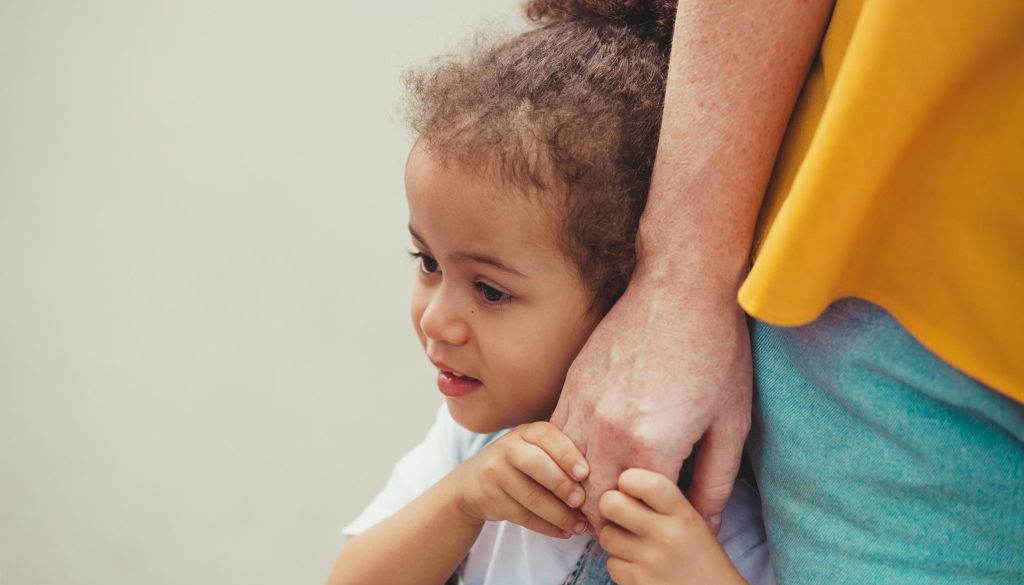Re-examining the “Shy” Label for Children

It’s not uncommon to hear a caregiver say, “they’re just shy,” as an explanation of a child’s hesitant behavior. The reality is that being cautious in unfamiliar situations, environments or with people they don’t know, should be totally acceptable and normal behavior from our children. So why do we often think of “shy” as a negative?
It’s most likely that the quick label of “shyness” when a child is simply showing caution or hesitancy is more about our own emotions than our child’s. If shyness has caused your child to hesitate in responding to adults, or engaging in new activities, it may bring up feelings of embarrassment about the behavior rather than being about the child at all.
The problem with a quick explanation of shyness, especially when in front of our child, can suggest to our child that there is something wrong with them. Quickly dismissing a child’s behavior as “shy” may be the automatic response to our own emotion and may send the message that our child should be embarrassed by a perceived flaw.
Reframe how we think about cautious behavior:
Being shy in new situations or around unfamiliar people can be a wonderful strength for children; this shows that they are in tune with their emotions regarding safety and have the self-awareness that they need to first observe their surroundings so that their own comfort level can be increased.
Cautiousness or hesitancy in new situations does not necessarily indicate an introverted personality type that will lead into adulthood. While introverts generally prefer a certain amount of solitude, children who exhibit shyness in new social situations may be slower to warm but most likely seek and enjoy the company of others.
Reframing how we think about cautious behavior focuses on the positive aspects of shyness, including doing well in school, following rules, and listening attentively to others. In fact, shy kids are generally considered “calm and easy” children.
When a child is showing signs of shyness, caregivers can do a few things to help support and encourage them:
- Validate their feelings– Let your kids know that it’s okay to feel shy or nervous in certain situations. “It’s okay if you don’t always want to play on the playground. Some of it is big and looks scary.”
- Relate and Empathize– Tell a story of a time when you were shy. “Sometimes when I meet new people, it’s hard to figure out what to say to them.”
- Prepare ahead of time– A lot of young kids have spent a good percentage of their lives not going out or socializing due to the Pandemic. Before taking your little one to a new outing or event, prepare them by telling them about the details first. Be descriptive and explain what you will be doing and for how long.
Remember, the next time you are tempted to use the “shy” label in describing your little one, stop, get reflective and ask yourself if the label is about your child’s behavior or your discomfort with it. Shyness doesn’t have to be a label that we stick on our child when we know that our children possess such beautiful and vast arrays of traits and characteristics. Even if our child is shy at times, it may just be an indicator that they are deeply in tune with their body and feelings. We can view that as a strength and provide support to our children by reframing our mindset of shyness!





